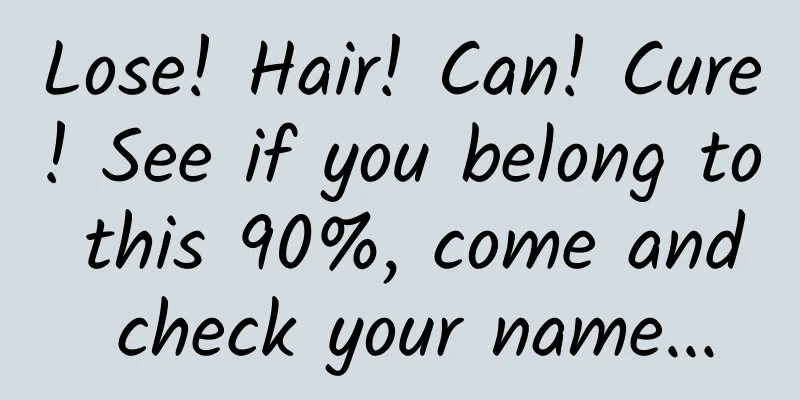Who stole your calcium?

|
Calcium supplementation is really important for maintaining the health of our bones and teeth. Many people think they are doing it seriously, but many people may not know that some eating habits in daily life may steal our calcium quietly, or cause our calcium supplementation effect to be unsatisfactory. Now we have summarized several daily eating habits that will steal our calcium, let's take a look at their true colors. 1. Excessive intake of salt Salt is an indispensable condiment in our daily diet. As the saying goes, "no salt, no taste"! However, when we take in too much salt, the kidneys will excrete some calcium ions at the same time in order to excrete the excess sodium ions. According to the above data (every 2300 mg of sodium excreted is equivalent to 6 grams of salt, and 40 to 60 mg of calcium will be lost), so eating too much salt will cause calcium loss. Solution: Low-salt diet, no more than 6g (a flat beer cap) of salt per day for adults, and no more than 5g (about a teaspoon) for the elderly. Osteoporosis patients need to pay more attention to salt intake. In addition, we should eat less salty pickled foods, smoked foods, and highly processed foods in our daily lives. At the same time, you can choose to use low-sodium salt or increase potassium intake to balance the electrolytes in the body. 2. Eating too much protein Protein is one of the three major nutrients for the human body. Amino acids are essential for the growth and repair of bone cells, but eating too much, especially animal protein, will cause excessive intake of sulfur-containing amino acids, thereby accelerating the loss of calcium in bones. According to the recommendations of the Chinese Nutrition Society, healthy adult men should consume 65 grams of protein per day, and women should consume 55 grams (or 0.8-1g per kilogram of body weight). Special populations, such as children, adolescents, pregnant women, lactating women, the elderly, people with weak immunity, and those recovering from surgery may have higher protein requirements. Solution: Eat protein in moderation, and reasonably combine plant protein and animal protein. Refer to the "1234 intake method". 1: 1 egg a day. If you are worried about the cholesterol in the egg yolk, you can only eat 2-3 egg whites. It is recommended to boil the eggs. 2: 2 cups of milk (200 ml/cup) a day. If you are lactose intolerant, you can drink 2-4 cups (80 ml/cup) of yogurt. 3: 3 taels of lean meat a day, you can choose fish, shrimp, livestock and poultry meat. 4: Eat soy products equivalent to 40 grams of dry soybeans every day, such as drinking soy milk, eating tofu, you can also eat bean curd and dried tofu. 3. Drinking too much coffee or strong tea Ingredients such as caffeine and theophylline in coffee and strong tea can interfere with calcium absorption. Long-term excessive drinking can lead to calcium loss. In addition, both caffeine and theophylline have a good diuretic effect, which can increase the frequency of urination. During urination, some calcium ions are taken away, thereby increasing calcium loss. Solution: Healthy adults should limit their coffee or tea intake to 3-5 cups per day, with 150 ml per cup being the most appropriate. If you really want to drink but are worried about calcium loss, you can add more milk to your coffee. You should also drink tea in moderation. Don't drink strong tea for a long time. It's healthier to drink light tea. (IV) Improper eating habits when supplementing calcium In the process of calcium supplementation, some improper eating habits may affect the absorption and utilization of calcium. For example, high-fiber foods such as oats and celery will increase gastrointestinal motility and reduce the residence time of calcium in the intestine, thus affecting calcium absorption. Foods containing oxalate such as spinach and beets will combine with calcium to form insoluble calcium oxalate, further reducing the absorption rate of calcium. Solution: During calcium supplementation, try to avoid taking high-fiber foods and foods containing oxalate at the same time. If you must take these foods, you can stagger them with the calcium supplementation time to reduce the impact on calcium absorption. To avoid bone calcium loss, the above daily eating habits should be corrected in time. Let us supplement calcium scientifically and maintain our calcium health. |
Recommend
What to eat after miscarriage to enlarge breasts? Four breast enlargement medicinal diets
When a woman is pregnant, her body increases the ...
What are those spots on the breast?
Small particles appear on the breasts, and this p...
Pictures of normal nipples
Before puberty, girls' nipples will protrude ...
Breast cancer diagnosis
I believe that more and more women have realized ...
What are some tips for removing red marks after spots?
Spotting is a common thing in life. In most cases...
Can I use essential oils on my face while breastfeeding?
Essential oil is extracted from the flowers, leav...
Can I hula hoop during my period?
Female friends can hula hoop during menstruation,...
Can I have a baby if I get pregnant while taking the medicine?
Many women get pregnant while taking medicine, so...
Do you need to thaw frozen corn before cooking it? How do you tell if the corn is spoiled?
Corn (Latin name: Zea mays L.) is an annual herba...
What does an ant's home look like? What is the classification and division of labor among ants like?
Ants are social animals. There are many species i...
Is eating frozen steamed buns harmful to the human body? Why don't steamed buns made from high-gluten flour rise?
Steamed buns, one of the traditional Chinese nood...
What should women eat to replenish blood and qi? Recommend these 8 foods
If women want to stay healthy and avoid diseases,...
Hard belly during pregnancy
A hard belly in the second trimester of pregnancy...
Why is the yellow fruit called yellow fruit? Is the yellow fruit an allergenic food?
As a high-quality fruit, the yellow peel fruit ca...









